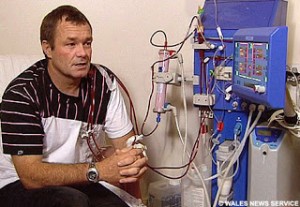Long waitlists for a kidney transplant have caused some people in need of the procedure to venture overseas. Many kidney recipients are reluctant to share information about the source of human organs transplanted overseas, but this is just one problem. Once the patient returns home, proper follow-up care is often hindered by the fact that there is a lack of communication between the foreign transplant team and the physician in North America.
There may be a sheet of paper stating that the kidney transplant went well. Often important information about what medications were given at the time of transplant is missing, and there is little or no information about the donor.
A Canadian study found that 33% of the patients who went abroad came back without medical documentation. The other 67% had often incomplete records. A study that was presented at the World Transplant Congress in Boston showed, that one third of the patients required immediate hospitalization upon their return, primarily for sepsis. More worrisome is the fact that many of the patients had poor long-term outcomes due to sepsis, systemic fungal infections and compromised grafts. All of them had received their kidneys from non-biological or emotionally related donors. Dr. R. Prasad of the University of Toronto examined the three-year graft survival at the Toronto center. Where patients received the kidney from a relative, the results were best, as the graft survival was 98% over 3 years.
Patients you received a kidney from an emotionally related donor had an 86% success. In the patient group who went abroad and underwent non-biological or emotionally related kidney transplantation the 3- year graft survival
dropped to 62%.
Reference: The Medical Post, September 1, 2006, page 19
Last edited December 5, 2012






